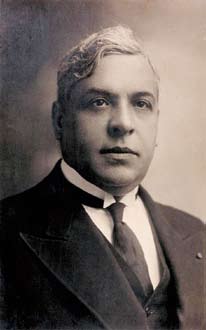
Between the 17th and 24th June 1940, the Portuguese Consul in Bordeaux, Aristides de Sousa Mendes, issued thousands of visas to Jews and others trying to escape German occupied France.
The actions of Sousa Mendes, against the explicit instructions of the Portuguese government at that time, led to the saving of 30,000 lives – at least 12,000 of them Jewish. Later that year, the humanitarian diplomat was severely punished by the Portuguese Ministry of Foreign Affairs. He was sentenced to one year's inactivity with the right to half-pay for "disobeying orders from his superiors in the course of his duties," and then forcibly retired from the diplomatic service, and stripped of his pension.
The disgraced diplomat, son of a Supreme Court judge and whose family had aristocratic origins, was a country squire, a conservative, devout Catholic and the father of 14 children, some of whom were born in the different countries and continents where the accomplished diplomat had served during his pre-war career.
Refugee aid organizations based in Paris moved to Portugal with the fall of the city. Jewish organizations such as the American Jewish Joint Distribution Committee (JDC) and Hebrew Immigrant Aid Society (HIAS) worked from July 1940 under the institutional aegis of the refugee section of the Jewish community of Lisbon and were involved in financing the transit costs of refugees and in guaranteeing their passage to third countries, a vitally important factor leading to a gradual flexibility in the Portuguese government's refugee policy.
However, by the time the change of attitude began, Aristides de Sousa Mendes and his family were destitute and among those being fed by the Lisbon Jewish Community Kitchen.
Sousa Mendes, who served in Africa, South America, the United States and 10 years in Antwerp, Belgium (where he met the Nobel Prize winners Maurice Maeterlinck and Albert Einstein) before being posted to France, suffered a stroke in 1945 and was left partially paralyzed. He died in 1954, an impoverished, broken man – still in disgrace with a government which had ordered that no one show him any charity - an outcast whose rent and food bills were paid by a local Jewish refugee agency when they discovered how destitute he had become.
A qualified lawyer, Sousa Mendes was prevented from re-registering to practice in Portugal, forced to surrender his driving license and shunned by society in general and even by some of his close friends and extended family members. Mendes’ children, most of whom left Portugal at later stages in their lives, never spoke against their father's actions or held negative feelings against him for the suffering imposed upon them due to his disobeying the wartime Portuguese government instructions. Indeed his two eldest sons helped him issue the life-saving visas during the critical days when borders were closing and people were trapped with little hope of survival.
In the mid 1960s, Sousa Mendes was honored as one of the "Righteous Among The Nations" at Yad Vashem in Jerusalem. This act was the beginning of a long road to posthumous recognition and honor for the man who had saved so many and paid for it with the loss of his career, the wellbeing of his family and eventually, poor health and poverty.
One of Mendes’ sons, John Paul Abranches, settled in the United States from where – in the 1980s - he began a petition directed at the Portuguese president, from within America. This caught the attention of the media and also of two Californian members of the United States House of Representatives, Portuguese American Rep. Tony Coelho and Rep. Henry Waxman, the latter having had a family member saved by a Sousa Mendes issued visa. A resolution was passed in the House of Representatives in the late 1980s recognizing the humanitarian acts of the Portuguese diplomat, lawyer and savior of tens of thousands of Jews and other persecuted minorities; priests and nuns; political dissidents and army personnel from countries occupied by the Germans and their cohorts.
The same year that the US bestowed the long overdue recognition, the Portuguese Republic awarded one of the country's highest honors, a posthumous Order of Liberty medal to Sousa Mendes and the following year the Portuguese parliament announced the dismissal of all charges laid against the former diplomat. A number of other prestigious awards were bestowed both on Sousa Mendes and his sons who had helped him deal with destitute people coming to the consulate and at a later stage, continuing to issue the lifesaving visas at border posts.
An impressive illustrated book by Portuguese artist Jose Rui, originally published in Portuguese, and in 2004 published by Yad Vashem in Hebrew, is designed to tell school pupils the story of the brave diplomat and the events leading up to his fateful decision not to turn a blind eye to the suffering he witnessed in Europe; it also graphically shows the suffering of Jews and others who were unfortunate enough to be deported to concentration and work camps – and the eventual liberation of those who survived.
Fernando Ferreira Da Silva, Press and Cultural Attaché of the Portuguese Embassy in Tel Aviv – who speaks Hebrew fluently – has been assisting organizations in Israel with an exhibition of photographs and other materials focusing on the life, heroic actions and harsh realities of Mendes’ final years and posthumous recognition.
"The story of Sousa Mendes is an amazing one," said Mr. Da Silva. "Although schools in Portugal have varying curricula, many have introduced the illustrated book into their educational framework."
The mansion home of Aristides Sousa Mendes do Amaral e Abranches (his full name) that he had no choice but to sell, was eventually left abandoned, derelict and due for demolishing. Sousa Mendes' heirs received compensation from the Portuguese government in the year 2000 and a fund created by the family purchased the mansion that the family eventually hopes will become a museum to honor Sousa Mendes, the man who ignored and defied the orders of his government to save fleeing refugees.
Editors' Note:
The Embassy of Portugal in Israel is searching for people living in Israel thanks to the actions of the Portuguese Consul. So far no survivors have been traced in Israel, but we are certain that some of the 30,000 Jewish survivors are living here. If your family includes persons who, at the beginning of WWII (1939-1940), had fled from Germany, Holland, Belgium or Luxemburg to France, and in Bordeaux had received an entrance visa to Portugal - it is important that we get in touch with them. Please establish a connection with Mr Avraham Pe'er, Chairman of The Israel-Portugal Friendship Committee, mobile # 050-528-8509. MG
 DEAR EDITOR 157 MAGAZINE
DEAR EDITOR 157 MAGAZINE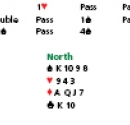 COUNTING ON INFERENCE
COUNTING ON INFERENCE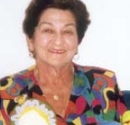 SHULAMIT LAMIE RAVINSKY 1925-2010
SHULAMIT LAMIE RAVINSKY 1925-2010 (302x450)-1451381711.jpg) Odeon Oscar
Odeon Oscar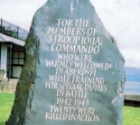 The Jewish Connection
The Jewish Connection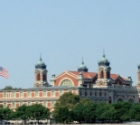 ellis island
ellis island Lydia Aisenberg
Lydia Aisenberg